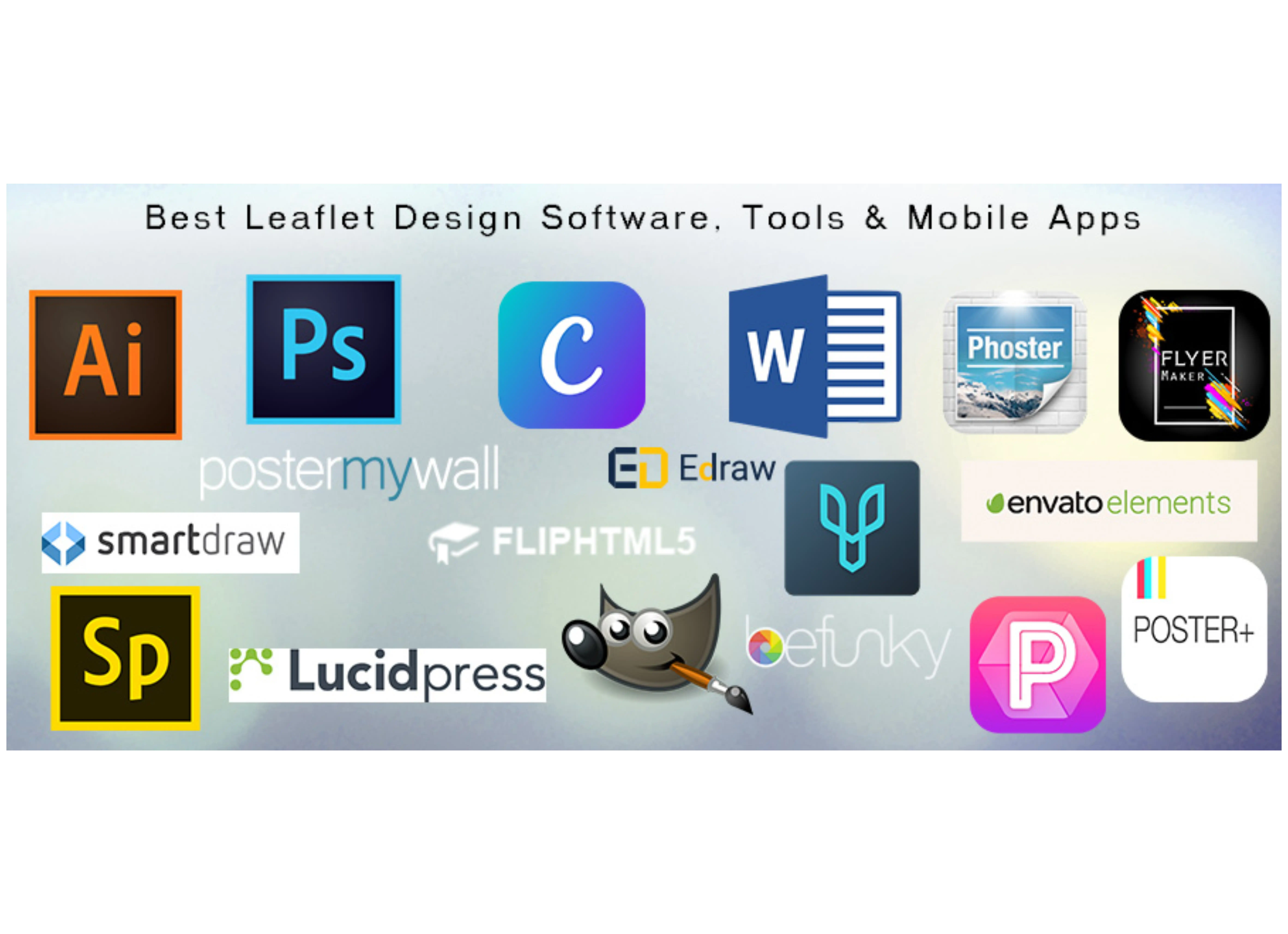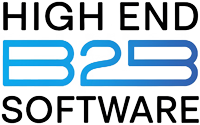Creative software has become a staple in various industries and hobbies. From graphic designers to filmmakers, its use is widespread.
Creative software is a powerful tool, transforming ideas into vivid realities. Artists and professionals across the globe rely on it to bring their visions to life. It’s not just for those with ‘artist’ in their job title, though. Businesses use it for marketing, educators for teaching, and hobbyists for personal projects.
This array of software offers tools for anyone with a story to tell, a design to share, or a concept to visualize. Imagine a world where every digital masterpiece, from movie effects to stunning logos, begins with a blank screen. Here enters creative software, the unsung hero behind the scenes. It’s not limited to the art studio; it’s in schools, offices, and homes. This software serves as a bridge between imagination and reality, enabling users to craft illustrations, edit photos, or produce music with clicks and keystrokes. Whether you’re a student, professional, or enthusiast, creative software opens up a universe of possibilities. Dive into the realm where creativity meets technology and discover who harnesses its power to create, inspire, and innovate.

Credit: selectedfirms.co
The Spectrum Of Creative Software Users
The world of creative software spans a vast array of users. From seasoned professionals to casual hobbyists, these tools empower a broad spectrum of individuals. They bring ideas to life, enhance projects, and inspire innovation. Creative software users form a diverse community, each with unique goals and levels of expertise.
Professionals In The Arts
Experts rely on creative software daily. Their projects demand advanced tools. Think of graphic designers, video producers, and architects. They use software for precision and efficiency.
- Graphic designers craft visuals for brands.
- Video producers edit footage for media.
- Architects design buildings using 3D models.
Software becomes an extension of their creative minds. It must offer functionality and flexibility.
Hobbyists And Enthusiasts
Hobbyists embrace creative software as a means to express themselves. They value ease of use and accessibility. Many are self-taught, using software to explore their passions.
- Photographers edit images for personal galleries.
- Music lovers create tunes on virtual studios.
- Writers organize thoughts with writing aids.
Their tools must be intuitive and inspiring, helping to bring visions to life.
Industries Revolutionized By Creative Software
Creative software has changed many industries. It lets people make, edit, and share work in new ways. Let’s look at some fields that have seen big changes.
Graphic Design And Visual Arts
Graphic design and visual arts rely heavily on creative software. This software helps artists and designers create stunning images, layouts, and animations. With it, they can:
- Draw and paint digitally.
- Design logos and branding materials.
- Create website layouts.
Tools like Adobe Photoshop and Illustrator are key. They make work easier and faster.
Film And Music Production
In film and music production, creative software is a must. It helps creators:
- Edit videos and movies.
- Compose and produce music.
- Improve sound quality.
Software like Adobe Premiere Pro and Ableton Live are popular. They help artists bring their visions to life.
Architecture And Engineering
Architecture and engineering also benefit from creative software. This software helps professionals:
- Design buildings and structures.
- Create detailed 3D models.
- Simulate and test designs.
Tools like AutoCAD and SketchUp are widely used. They make designing and planning more accurate.
Creative Software In Education
Creative software shapes today’s educational landscape. Teachers and students harness these tools to boost learning and creativity. From digital art to coding, software unlocks potential at every level.
Primary And Secondary Schools
Young minds thrive with visual learning. Creative software in schools encourages this. Students create projects and presentations that reflect their understanding. Teachers use software to craft interactive lessons.
- Graphic design tools for art classes
- Video editing software for media studies
- Animation programs for storytelling
These tools make subjects come alive. They foster collaboration and critical thinking.
Higher Education And Specialized Courses
Colleges and universities equip students with industry-standard software. This preparation is key for future careers. Specialized courses offer deep dives into software applications.
| Field | Software Examples |
|---|---|
| Graphic Design | Adobe Photoshop, Illustrator |
| 3D Modeling | Autodesk Maya, Blender |
| Music Production | Ableton Live, Pro Tools |
Such courses often lead to certifications. These are valuable in job markets.
.webp)
Credit: www.kdci.co
Impact Of Creative Software On Freelancers
Creative software has redefined the freelance landscape. These powerful tools enable freelancers to produce high-quality work efficiently. Let’s delve into their impact.
Evolving Work Opportunities
Freelancers now access jobs globally, thanks to creative software. This shift brings diverse projects to their fingertips. They can collaborate with clients anywhere, anytime.
- Remote work becomes a reality
- Greater exposure to international markets
- Increased demand for digital skills
Building A Digital Portfolio
A strong portfolio showcases a freelancer’s skills. Creative software plays a crucial role in this. It helps freelancers create stunning visuals and engaging content that stands out.
| Portfolio Element | Software Benefit |
|---|---|
| Graphic Design | Professional layouts and imagery |
| Video Editing | Cinematic effects and storytelling |
| Web Development | Responsive and interactive designs |
The Role Of Social Media Influencers
The world of social media is vast. Social media influencers play a big part. They use creative software to stand out. Let’s dive into how they do it.
Content Creation
Influencers create lots of content. They use software to make their posts pop. This includes:
- Photos: They edit photos to look perfect.
- Videos: They cut and add effects to videos.
- Graphics: They design eye-catching graphics.
This content keeps followers engaged. It tells stories. It shares experiences.
Brand Building
Influencers build brands. They use creative software for:
- Logos: Making unique logos.
- Themes: Creating consistent themes.
- Ads: Designing attractive ads.
These elements help influencers stand out. They make followers remember them. This builds a strong brand.

Credit: zipboard.co
Businesses And Marketing Departments
Businesses and Marketing Departments rely heavily on creative software. From crafting persuasive ads to designing innovative products, the tools help brands stand out. Let’s explore how different departments utilize this software.
Advertising Campaigns
Marketing teams use creative software to build captivating ads. The software aids in creating visuals and layouts for various platforms. This includes social media, print, and online ads.
- Graphic design tools
- Video editing programs
- Animation software
Each tool ensures ads grab attention and convey the right message. Teams can track campaign performance and tweak designs for better results.
Product Design And Prototyping
Design departments turn ideas into tangible prototypes with creative software. They sketch initial concepts and refine them into 3D models.
| Stage | Software Use |
|---|---|
| Concept | Digital sketching |
| Design | 3D modeling tools |
| Prototype | 3D printing software |
This process saves time and resources. Teams can identify design flaws early and make necessary changes before mass production.
Non-profit Organizations And Activism
Non-Profit Organizations and Activism groups find great value in creative software. These tools help them tell their stories, connect with people, and drive change. Creative software enables these groups to create impactful visuals and messages. This boosts their campaigns and community work.
Awareness Campaigns
Non-profits use creative software for awareness campaigns. They create compelling images, videos, and infographics. These visuals make complex issues easy to understand. They grab attention and make people want to learn more. Creative content helps spread the word on social media and websites.
- Design posters for social media shares
- Create videos that tell stories
- Make infographics that show facts clearly
Community Engagement
Engaging the community is key for non-profits. Creative software plays a big part here. It helps create materials for workshops, fundraisers, and events. These materials can be flyers, email newsletters, or interactive online content. They help inform, educate, and get people involved.
- Workshop materials that teach and engage
- Email newsletters that keep people updated
- Interactive content for online engagement
Overall, creative software is a powerful tool for non-profits. It helps them spread their message and engage with the community. This leads to more support and a bigger impact.
The Diy Movement And Creative Software
Creative software has become a staple in the DIY movement. It empowers people to bring ideas to life. With easy-to-use tools, anyone can tackle projects. From home decor to personal artwork, the possibilities are endless.
Crafting And Home Projects
Creative software lights a spark in crafting and home projects. Users design custom pieces with software like Adobe Photoshop or Canva. Here are some popular uses:
- Custom graphics for t-shirts and mugs
- Personalized greeting cards and invitations
- Home decor plans and 3D models
These tools help turn visions into tangible items. They also save money and add a personal touch.
Online Tutorials And Workshops
Learning creative software is now easier. Online platforms offer tutorials and workshops. Check out these resources:
| Platform | Focus Area |
|---|---|
| Udemy | Various software skills |
| YouTube | Free diverse tutorials |
| Skillshare | Creative classes |
These online guides provide step-by-step help. Users learn at their own pace. They grow skills to tackle any project.
Frequently Asked Questions
Who Are The Primary Users Of Creative Software?
Creative software is primarily used by professionals in design, photography, video production, and digital art. These include graphic designers, photographers, video editors, animators, and digital artists. Hobbyists and educators in creative fields also frequently use creative software to bring their visions to life.
How Does Creative Software Benefit Businesses?
Creative software benefits businesses by enabling the creation of high-quality, engaging content for marketing, advertising, and branding. It helps in designing visually appealing logos, brochures, websites, and social media posts. This enhances brand identity and aids in attracting and retaining customers.
Can Beginners Use Creative Software Effectively?
Yes, beginners can effectively use creative software thanks to user-friendly interfaces, extensive tutorials, and community support available for most platforms. Many software options offer basic modes or templates that help beginners start their creative projects with ease.
What Are The Latest Trends In Creative Software?
The latest trends in creative software include AI-driven design tools, augmented reality (AR) and virtual reality (VR) content creation, and cloud-based collaboration platforms. These advancements are making it easier for creatives to produce innovative and immersive content.
Conclusion
Creative software spans a broad user base, from professionals to hobbyists. Graphic designers, architects, and filmmakers rely on it daily. So do educators and students in various fields. Even casual creators find these tools essential for personal projects. Everyone can tap into their creative potential with the right software.
No matter your skill level, there’s a creative software that fits your needs. Embrace the digital canvas, and let your imagination run wild. Your next masterpiece awaits.
